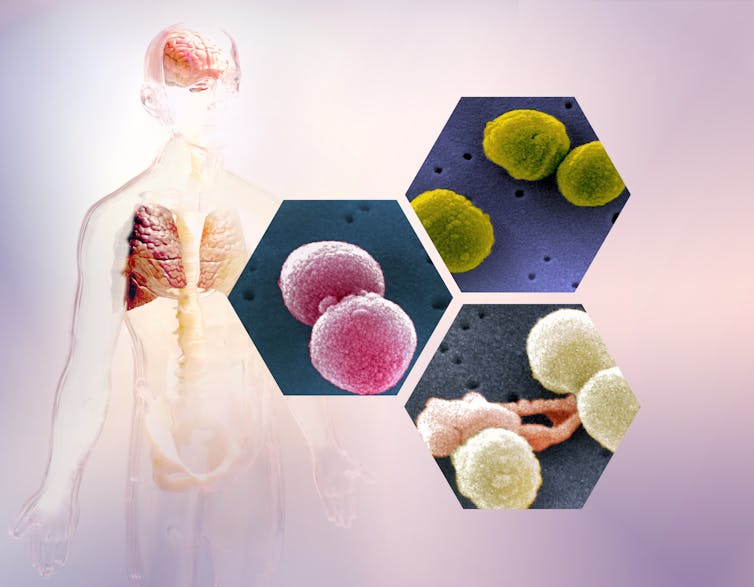The United Nations General Assembly could turn the tide on antimicrobial resistance. The keys to making this happen are ensuring policymakers have the best available evidence and rallying political support through unifying goals.
Later this month, world leaders, civil society and global health researchers like me will convene at the UN General Assembly for arguably the most important meeting on antimicrobial resistance (AMR) this decade. On Sept. 26, a special high-level meeting on AMR will set the global agenda to mobilize action on this growing health and development challenge.
The stakes are high. AMR is a complex global challenge that — like climate change — no one country can deal with alone. AMR occurs when the bacteria and other microbes that cause infections like pneumonia, sepsis or tuberculosis gain the ability to resist treatment by antibiotics or other antimicrobial medicines. These drug-resistant microbes are sometimes called “superbugs.”
This natural process has been accelerated by inappropriate use of antimicrobials and now contributes to about five million deaths annually, increasingly threatening animal health, food security and national economies.

(NIAID), CC BY
Table of Contents
Triple burden
As with climate change, low- and middle- income countries are in an especially precarious position, facing a triple burden of lack of access to quality-assured antimicrobials, a higher burden of AMR and fewer resources to effectively respond to this emerging threat.
Also like climate change, AMR threatens human health, animal health, food security and economic well-being, requiring a “One Health” approach and co-ordination across ministries of finance, health, agriculture and more. With all this complexity, there is an urgent need to bring the best available evidence to bear on which policies can best address these global inequities and cross-sectoral challenges.
Even with AMR stalling progress on many United Nations Sustainable Development Goals — including Good Health & Wellbeing (Goal 3), Zero Hunger (Goal 2) and Decent Work & Economic Growth (Goal 8) — there is little political pressure to act at the highest levels of government. This can be partially blamed on the highly technical nature of most national and international discussions on AMR, which does little to engage the public and fails to capture the political imagination of world leaders.
As a result, there is cause for concern that the high-level meeting will fail to capture this unique opportunity to increase public and political engagement on AMR by narrowly focusing on technical guidance for countries.
Lessons from climate change

(NIAID), CC BY
At the Global Strategy Lab at York University, we research how global threats that require co-ordinated global action, like AMR, can be effectively addressed. We have also identified critical lessons from climate change policy and successful international agreements, like the Montreal Protocol on Substances that Deplete the Ozone Layer.
This research points to two big ideas that could help the upcoming high-level meeting successfully galvanize political action to equitably address AMR now and into the future.
1. Unifying goals to rally public and political support
If there’s one goal in recent memory that has reached nearly universal recognition among politicians, activists and the public, it’s the Paris Climate Accord’s agreement to limit global warming to well below 2 C. This goal has been instrumental in building awareness, defining success, providing a barometer for progress and uniting collective efforts to address climate change. It has also been critical to mobilizing the political attention and resources needed to address this complex challenge.
In April 2024, with the support of the Rockefeller Foundation, we convened leading global health and policy experts to identify factors needed for a unifying goal to accelerate action on AMR. The Bellagio Group for Accelerating AMR Action concluded that a unifying goal would need to:
- unite actors and actions across human health, animal health, agricultural and environmental sectors;
- prevent infections through effective and affordable interventions like vaccination programs and water, sanitation and hygiene infrastructure; and
- prioritize equitable and sustainable access to lifesaving antimicrobials for all.
As a proposal, the Bellagio Group for Accelerating AMR Action put forward the 1-10-100 unifying goals: using a One Health approach to save 10 million lives and aim for 100 per cent sustainable access by 2040.
Since this meeting, other goals and targets have been put forward, including the 10-20-30 targets from the Lancet series on AMR (10 per cent reduction in AMR mortality, 20 per cent reduction in inappropriate antibiotic use in humans and 30 per cent reduction in animals).
No matter which goals emerge from the high-level meeting, they must reflect the needs and priorities of low- and middle-income countries and marginalized communities, which face the highest burden of infectious disease, have the least access to effective antimicrobials, and whose health and food systems are least prepared to respond to the threat of AMR.
It’s vital that UN member states do not settle for a list of technical targets and guidance, but instead take this historic opportunity to introduce unifying goals that rally public and political support to accelerate policy action and mitigate AMR.
2. Provide policymakers with the best evidence available
In 2019, the UN’s Interagency Coordination Group for Antimicrobial Resistance identified three bodies needed to support global efforts to address AMR:
- a global leaders group to drive political action,
- an AMR Multi-Stakeholder Partnership Platform to foster co-operation among diverse AMR stakeholders across One Health sectors, and
- an independent panel on evidence for action against AMR.
The first two bodies were created in 2020 and 2023 respectively, but the independent panel on evidence for action — which is meant to provide policymakers with the best available evidence on addressing AMR — has yet to be created.
A scientific panel on AMR would provide UN member states with rigorous and tailored reviews of the most up-to-date research available to promote equitable, evidence-informed policies. This research-to-policy function is critical for synthesizing the increasingly large volume of research on AMR into an objective assessment of national and global progress on addressing the problem, and tailored policy options for a variety of countries.
By providing this valuable policy research as a global public good, all countries would benefit from high-quality, globally recognized evidence on AMR to protect lives, livelihoods and the economy.
Again, there are lessons from climate change policy: a scientific body called the Intergovernmental Panel on Climate Change (IPCC) was created to provide policymakers with regular scientific assessments on climate change, its implications and potential future risks. Our research has outlined how the IPCC can be used as a model for an independent panel on evidence for action to become a globally recognized arbiter of evidence for AMR.
By keeping the ideas that worked well and avoiding some of the more problematic issues with the IPCC, a well-designed scientific panel on AMR could support equitable, evidence-informed AMR policymaking.
By establishing unifying goals that rally political support and pairing those goals with policy-relevant evidence for UN member states to reach those goals, this historic UNGA high-level meeting on AMR could become a turning point for achieving real progress to mitigate AMR.
It’s time we turn the tide on AMR while we still can.
![]()
Mathieu JP Poirier receives funding from the Social Sciences and Humanities Research Council and the Wellcome Trust,
























